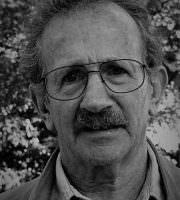About Philip Levine
Philip Levine’s best-known poetry deals with working-class themes in an industrial setting, frequently the Detroit of his upbringing. Yet, because Levine’s verse honors the endurance of the human spirit in the midst of harsh exterior conditions, he could best be described as a poet of humanity in general, endowing the silenced with voices that transcend material circumstance. Influenced by the expansive verse of Walt Whitman and, to a lesser extent, William Carlos Williams, Levine’s early poems contain a carefully controlled, rhythmic energy expressive of personal and collective freedom. Levine’s recent poems take on a quiet, conversational tone; they are somewhat less controlled than the climatic chants of his first volumes, and in them fury is replaced with reverence. A characteristic intensity of emotion as well as a subsequent break with traditional forms place Levine among those poets of the late 1950s and early 1960s, including several poets of Post–Confessional and Deep Image Poetry, responsible for a second flowering of romanticism in American verse.Born in Detroit, Levine published 17 collections of poetry. Throughout his career, Levine’s work has consistently gained critical recognition in American arts and letters. Ashes: Poems Old and New (1979), an exploration of Jewish heritage, earned the first American Book Award for poetry. Levine’s newer work continues to gain acclaim: What Work Is (1991) received the National Book Award, and The Simple Truth (1994) won the Pulitzer Prize.
Frequently addressing his readers throughout, Levine encourages their participation in the shaping of the poem. In his aim to make poetry useful in our daily lives, Levine reminds his readers of the poetic subject matter residing inside of them. As Levine writes about personal memories in “The Simple Truth” (1994), sometimes “they must be said without elegance, meter and rhyme.” Though he often displays a certain self-effacement—a skepticism that resembles how one of his characters might regard poetry—Levine’s continued devotion to the craft exhibits his faith in the transformative potential of poetry.
Browse all poems and texts published on Philip Levine









